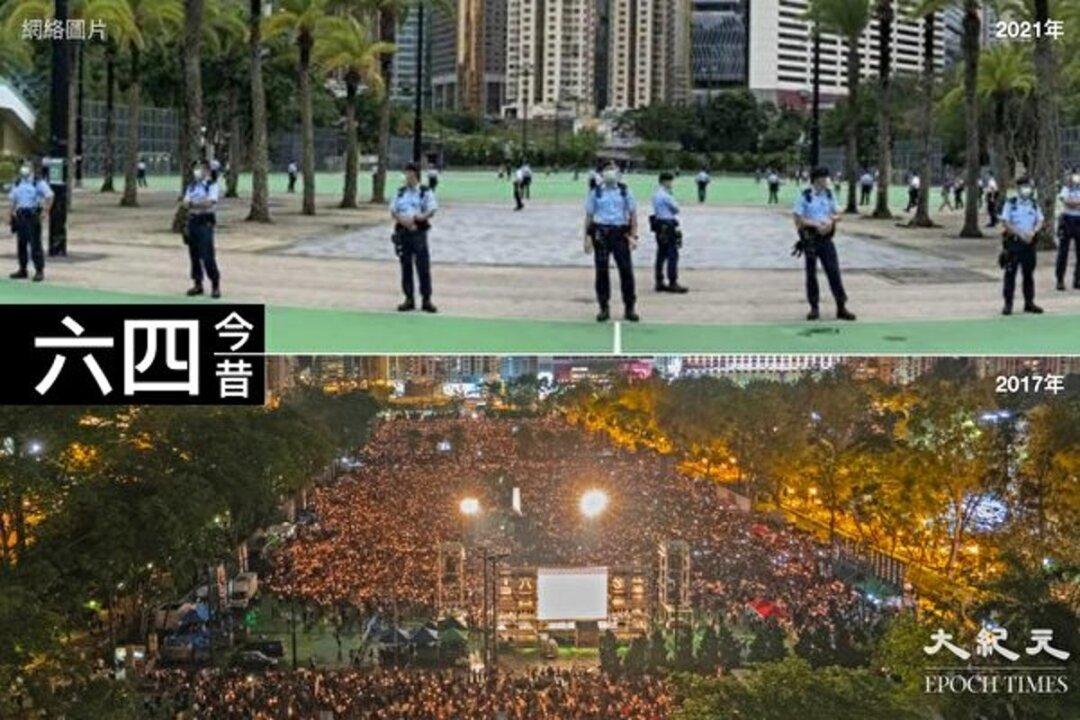This year marks the 33rd anniversary of the June 4 Tiananmen Square massacre. For the first time, there is no June 4 candlelight vigil in Hong Kong’s Victoria Park.
By 11 p.m. on the evening of June 3, the government closed the central lawn, soccer field, basketball court, and many entrances to Victoria Park. It was believed the venue might be used for so-called illegal activities. A large number of police officers wearing stab-proof undershirts and neck guards were deployed in the vicinity of Victoria Park and Causeway Bay from noon onwards to stop and check people.





